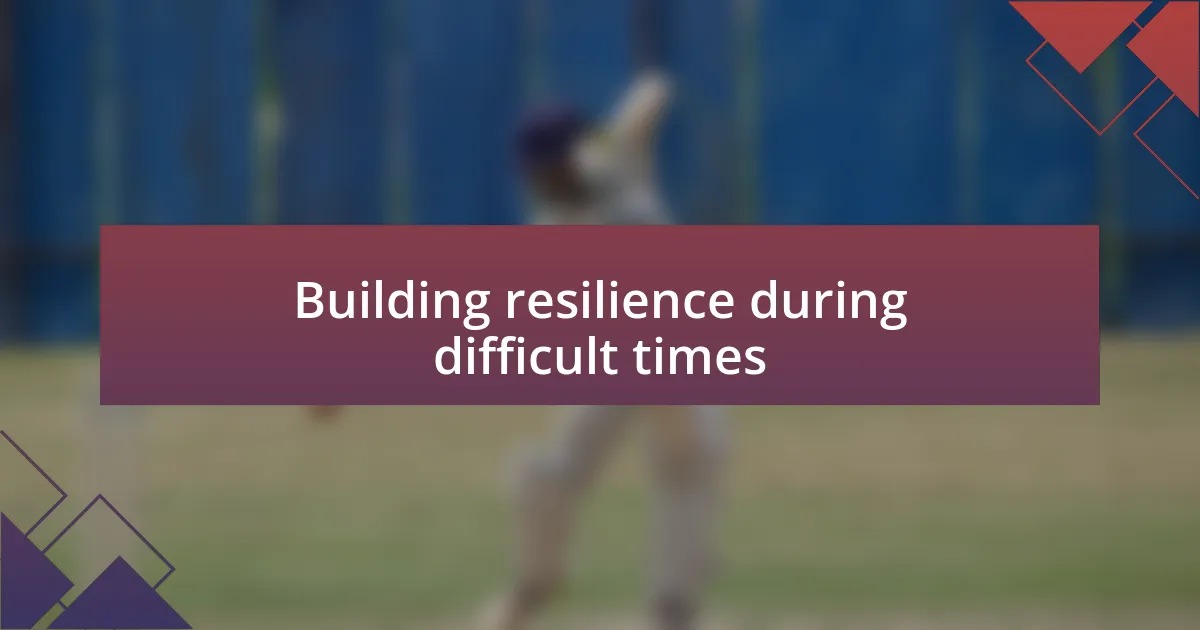Key takeaways:
- Motivational slumps can arise from burnout, stress, and emotional fluctuations; recognizing these factors is essential for recovery.
- Common triggers of slumps include unrealistic expectations, negative self-talk, and comparison with others, which can stifle motivation.
- Effective strategies to regain motivation include breaking tasks into smaller goals, maintaining a routine, and connecting with supportive communities.
- Setting realistic and flexible goals can help maintain motivation, allowing for progress without overwhelming pressure.

Understanding motivational slumps
Motivational slumps are a common experience, often creeping in when we least expect it. I remember a time when I was excited about a new project, and then suddenly, I hit a wall. It left me feeling drained and questioning my abilities. Have you ever felt that way? It’s unsettling, isn’t it?
Understanding these slumps is essential. They often arise from burnout, stress, or even stagnation—factors that can drain the passion right out of any endeavor. I once scrutinized a period in my life when I was juggling too many responsibilities and felt overwhelmed. The fire I once had dimmed, leaving me struggling to find motivation in tasks I normally enjoyed. It’s crucial to recognize that slumps aren’t a reflection of failure; they happen to everyone.
Emotional fluctuations play a significant role in motivational slumps as well. I’ve noticed that when I’m feeling low or unappreciated, my drive takes a hit. Have you given thought to your emotional state during these times? It’s not just about willpower; understanding the emotions behind your motivations can provide clarity and a pathway to recovery. Moving forward, acknowledging these feelings can lead to actionable insights for rekindling that spark.

Common causes of motivational slumps
Motivational slumps often stem from a variety of internal and external factors. For me, one significant trigger has been the overwhelming pressure of expectations—both self-imposed and external. There have been times I felt paralyzed by the weight of what I thought I should achieve, leading to a total lack of motivation. Recognizing these pressures is key; it’s crucial to understand that they can stifle our enthusiasm and create a cycle of negativity.
Some common causes of motivational slumps include:
- Burnout: Overextending ourselves can lead to exhaustion and disengagement.
- Lack of clarity: Ambiguity regarding goals can foster uncertainty and hesitation.
- Negative self-talk: Criticizing oneself erodes confidence, dampening drive.
- Comparison with others: Constantly measuring ourselves against peers can undermine our self-worth.
- Emotional instability: Fluctuations in mood can cloud our motivation and focus.
Additionally, I’ve found that stagnation can be a real confidence killer. I recall a phase where I felt I was going through the motions without any sense of progress, which only deepened my slump. In those moments, it’s essential to tap into our passions and remind ourselves of our journeys, even if they feel monotonous. Recognizing these feelings can serve as a catalyst for change—sparking new ideas or revisiting our initial inspirations.

Recognizing your personal triggers
Recognizing your personal triggers can feel like unearthing hidden treasures within yourself. I’ve learned that specific situations or emotions often bring my motivation to a standstill. For instance, I noticed that when I set unrealistic deadlines, I’d become overwhelmed and disengaged. It’s fascinating how pinpointing these triggers enables you to devise strategies to counteract them.
Another illustration comes from my experience with comparison. I used to scroll through social media, feeling inadequate next to peers accomplishing spectacular feats. The moment I recognized this pattern, I shifted my focus to my own goals. By writing down my unique achievements, I highlighted my progress rather than diminishing it through comparison. This realization didn’t happen overnight; it took noticing the consistent impact of external influences on my mindset.
Sometimes, reflecting on how I react to challenges can be just as illuminating. I’ve often found that my motivation dwindles during moments of uncertainty, especially when I can’t see the path forward. Acknowledging these emotional fluctuations has equipped me to create a supportive environment where I allow myself to feel vulnerable, thus opening the door to recovery and renewal.
| Triggers | Personal Insights |
|---|---|
| Unrealistic Deadlines | Overwhelm leads to disengagement. |
| Social Media Comparison | Can foster feelings of inadequacy and distract from personal achievements. |
| Emotional Uncertainty | Recognizing vulnerability opens the path to recovery. |

Effective strategies to regain motivation
One effective strategy I’ve adopted is the practice of breaking tasks into bite-sized pieces. When I find myself lacking motivation, I don’t aim to tackle everything at once. Instead, I set small, achievable goals—like focusing on just one part of a project. This method not only makes daunting tasks feel manageable but also allows me to celebrate each tiny accomplishment, reigniting that spark of motivation I sometimes lose.
Another approach I’ve found helpful is maintaining a routine, which creates a sense of stability. I remember a time when I struggled to return to my writing after a creative slump. Establishing a dedicated time each day to write, even if it was just for fifteen minutes, brought a rhythm back to my day. This structure helped me push through the lethargy, proving to myself that I could find joy and motivation in consistency, even when my inspiration felt lacking.
Lastly, connecting with like-minded individuals can be a game changer. I once joined a local writers’ group during a particularly uninspired phase. The energy and encouragement from fellow creatives were infectious. Their shared experiences and motivations reminded me of my passion and purpose, illustrating how our journeys can intertwine to uplift one another. Have you ever experienced that burst of motivation simply from being in the right company? It’s remarkable how collaboration can spark ideas and drive you forward when self-motivation wanes.

Setting realistic goals for motivation
Setting realistic goals is crucial when motivation falters. I’ve often found that when I set overly ambitious targets, I end up feeling overwhelmed and discouraged. For instance, during a particularly tough period in my career, I aimed to complete an entire project in just a week. It was a failure that only drained my motivation further. Instead, I learned to set daily goals, like finishing one section a day, which helped me feel accomplished without the pressure of the bigger picture.
As I reflect on my experience, I’ve noticed that specificity matters greatly in goal setting. When I designed goals like “write for thirty minutes” instead of “write today,” the clarity transformed my focus. It made me accountable to myself, and the act of ticking that off my list provided instant gratification. Have you ever felt that rush when you realize you’ve met a goal, no matter how small? Those moments can create a positive feedback loop that keeps you moving forward.
Moreover, being flexible with your goals can also play a significant role in maintaining motivation. There were days when I simply couldn’t meet my writing goals due to external pressures. I learned that adjusting my expectations without guilt allowed me to stay engaged with my craft. For example, if I couldn’t write for thirty minutes, I’d opt for jotting down quick ideas or outlines instead. It’s all about progress, not perfection, right? Setting goals that adapt to your circumstances helps keep motivation alive, even when life throws you curveballs.

Building resilience during difficult times
Building resilience during difficult times requires a deep understanding of oneself and the ability to adapt when circumstances become challenging. I recall a phase in my life when everything seemed to crumble around me—work stress, personal issues, and a daunting sense of uncertainty. During that time, I realized that I needed to cultivate a habit of reflection. I began journaling daily, expressing my thoughts and feelings. This simple act helped me process my emotions and see my struggles in a different light, transforming despair into a source of strength.
Another key element of resilience is cultivating a supportive network. When I found myself in a rut, reaching out to friends for support made a world of difference. I remember one particular conversation with a close friend where I shared my frustrations. Her understanding and encouragement reignited my passion and made me appreciate the importance of connection during tough times. Have you ever noticed how sharing your burdens can lighten the load? That sense of community can provide not just comfort, but also fresh perspectives that help you navigate difficulties.
Moreover, embracing a growth mindset is essential to resilience. I learned that viewing challenges as opportunities to learn and grow can change the narrative surrounding my setbacks. At one point, I faced a significant career setback that left me feeling lost. Instead of wallowing, I asked myself what skills I could develop during this downtime. Pursuing online courses and seeking mentorship opened new doors I hadn’t considered before. Was it uncomfortable? Absolutely. But it reinforced my belief that resilience isn’t merely about bouncing back; it’s about pushing forward and embracing the unknown.



